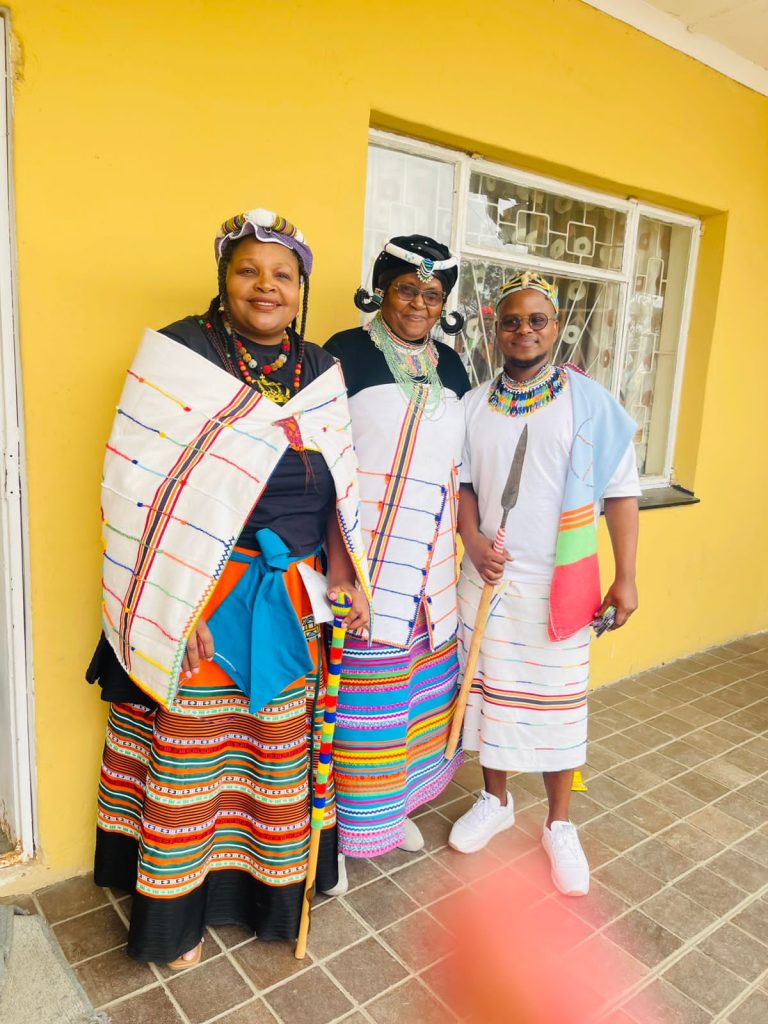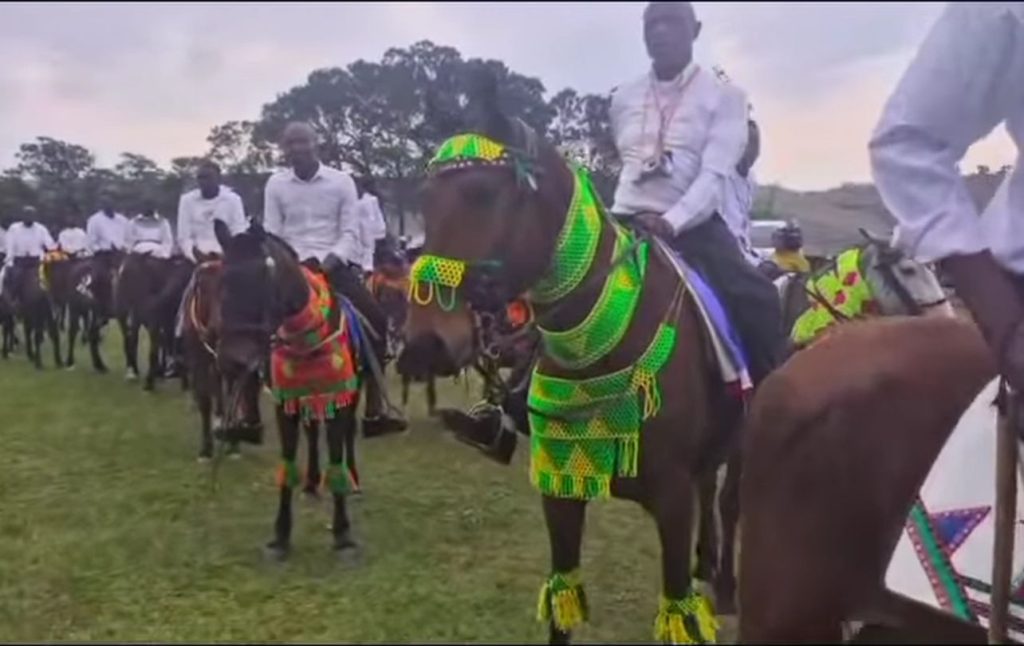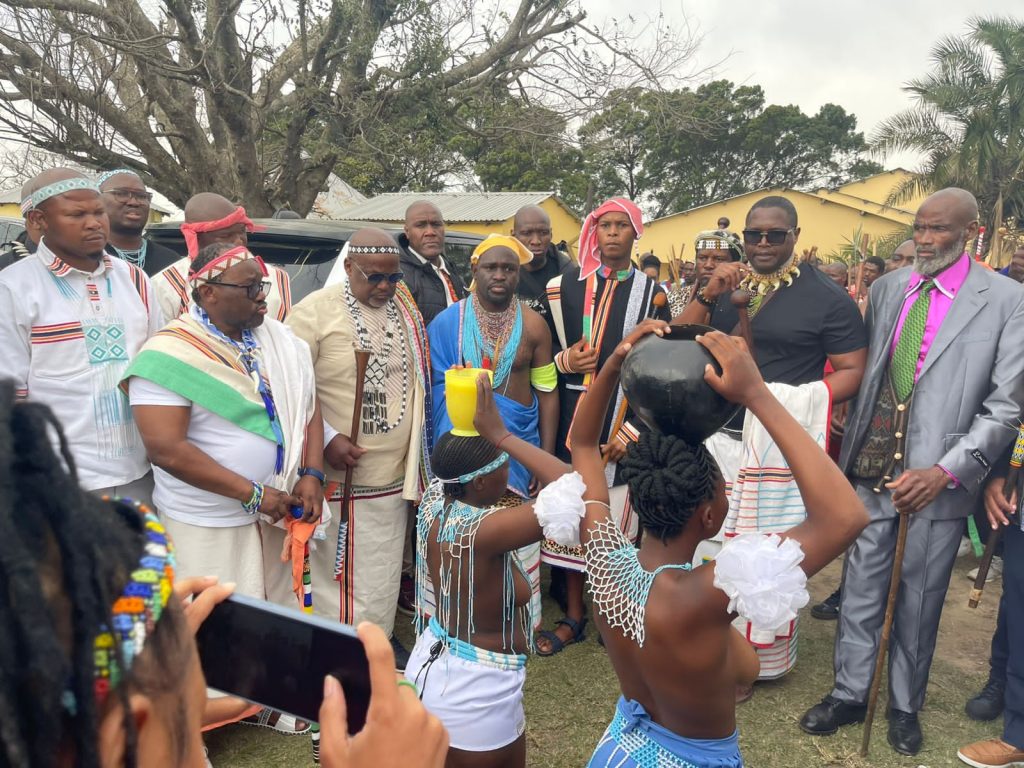UNITY IN DIVERSITY, ECONOMIC DEVELOPMENT AND FIGHT AGAINST GBV ECHOED AT 19TH MPONDO FESTIVAL
The rolling hills of Ntabankulu came alive with colour, culture, and unity as thousands gathered for the 19th annual Mpondo Culture and Heritage Festival (Umgubho wamaMpondo) and the 17th Mpondo Reed Dance (Inkciyo yamaMpondo), held from 13–14 September 2025 at the Lwandlolubomvu Great Place in Matshona Village.
Traditional leaders from across South Africa and beyond joined the amaMpondo in a celebration that was as vibrant as it was purposeful. This year’s festival carried a strong message: unity in diversity, rural economic development, and uprooting gender-based violence (GBV).
His Majesty King Silosohlanga Sigcau emphasised that economic development in rural areas is crucial to improving the quality of life for communities and addressing social ills like crime and GBV. “A better life for our people begins with sustainable economic growth in the villages,” he said.

Festival chairman Nkosi Jongilanga Sigcau highlighted the cultural and economic significance of the annual event. “These festivals are not only about preserving heritage; they are also a driver of tourism, boosting the hospitality industry and positioning Mpondoland as a cultural tourism destination,” he said. He further stressed the importance of partnerships between traditional leaders in sectors such as tourism and agriculture.
The festival also marked 21 years of cultural alliances between the Mpondo Kingdom and the Ndebele, Tsonga, and Pedi Kingdoms. Leaders from these royal houses reflected on the value of these partnerships. Prince Serake Mampuru of the Pedi Kingdom said such relations help dismantle tribal stereotypes rooted in apartheid. Prince Nyiko Mahumane of amaTsonga called for self-sustainability and inter-kingdom economic collaborations, while Nkosi Magodongo Mahlangu of the Ndebele Kingdom praised the festival for being a platform of cultural exchange.

Representatives from the Swati Kingdom, including Prince Nkosingiphile Dlamini, spoke of deep historic ties between amaMpondo and Eswatini. He reminded attendees that two amaMpondo queens, the late Queen Mamswati of Nyandeni and Queen Masobhuza of Qaukeni, were descendants of King Sobhuza of Eswatini, further strengthening the bonds between the two nations.

The royal representation was extensive, with leaders from the Sotho, Xhosa, Bhaca, Tswana, Thembu, and Xesibe royal houses in attendance. Delegations even arrived from Botswana, with Botswana’s own Casper “The Golden Voice” delivering a crowd-pleasing performance.
Government structures also lent their support, including the Department of Arts and Culture (Alfred Nzo District), Ntabankulu, Alfred Nzo, and Winnie Madikizela-Mandela Municipalities, as well as the Liquor Board.
The celebration brought together over 20,000 people, who were treated to Mpondo cuisine, traditional attire, horse parades (umkhwelo), and performances from local artists such as Ntombethongo, Sivuyile RSA, Tofolux, Makholwa, Selula, Gqubemswanini, Mvee, and others. Traditional groups from other regions, including the King Mampuru group from Limpopo, also showcased their heritage.

